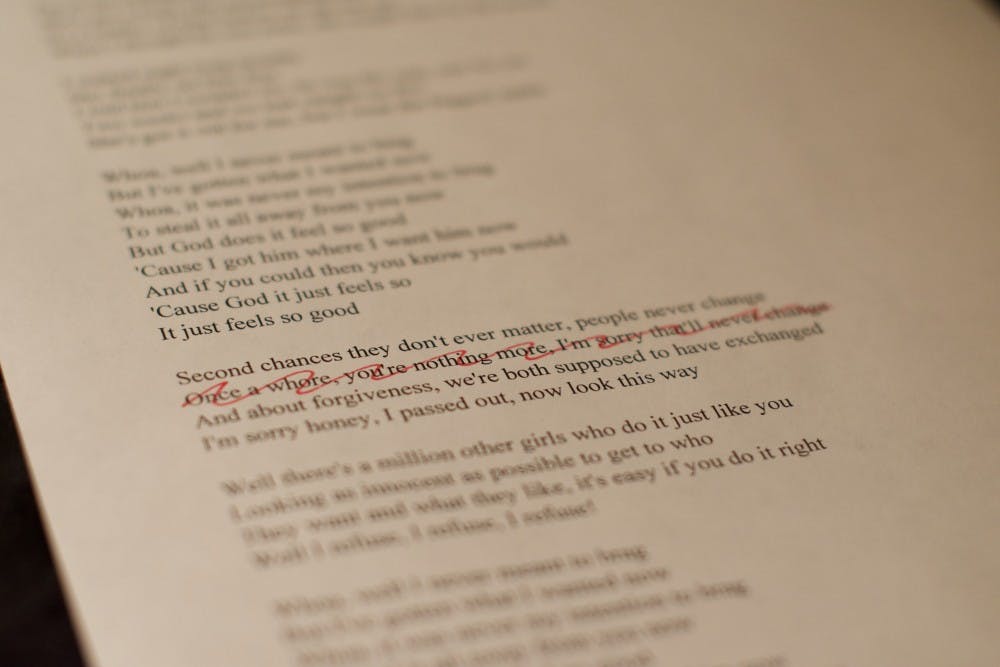Photo by Akuya Stoddard
Since I first made an account in seventh grade, I have never deleted a single Instagram post. Everything’s still there. I can’t tell you why I’d be willing to allow any possibility for friends or employers to see my cringey old collection of #gamergurl memes or shakey 15-second videos of me playing Evanescence songs on an out-of-tune guitar. I guess part of me likes having it all still out there so I can see how I’ve changed.
Looking back isn’t always fun for everyone, though. Sometimes what you put out into the world has a way of making its way back to you in a bad way.
This past September, pop-punk giant Paramore announced during a Nashville concert that they would no longer be performing their 2007 hit, “Misery Business” at any future live shows.
“This is to every bad decision that led us here, to all the embarrassing things we might have said” the band’s lead singer, Hayley Williams announced to the crowd that night at Nashville Municipal Auditorium. “But we owned up to it and we grew.”
The announcement was met, as expected, with a mass-mourning on social media. People were sad, angry, upset — and with good reason. Scientifically speaking, the song slaps.
First released as a single from the band’s second album, Riot!, “Misery Business” found its way all over the charts, went triple platinum in the United States, and to this day it remains the band’s most played song ever. It’s a pop-punk staple. A fun, fiery combination of a catchy beat and a roaring chorus that never fails to get a crowd hype.
But the song has always been controversial, mainly due to its lyrics and subject matter. “Misery Business” follows your typical narrative of the punk versus the prep. It tells the story of a popular and hateful woman who ultimately loses her man to Hayley Williams. As a song format, it’s everywhere, across every genre. It’s “Sk8r Boi.” It’s “You Belong With Me.” But what’s gotten people angry about “Misery Business” in particular is a line where Williams tells the other woman that “once a whore, you’re nothing more / I’m sorry, that’ll never change.” It’s sexist and slut-shamey and admittedly not a good look for Williams, a self-professed feminist.
Entertainers eating their words over controversial past comments has been a commonly recurring theme this year. Everyone from Hollywood directors to YouTube beauty gurus have had to issue apologies over offensive comments. Some have been accepted back into the mainstream, others have not.
Paramore, for the most part, has emerged from the fray unscathed. How? What makes their apology more effective, more believable?
The key here is engaging the problem.
For public figures, the knee-jerk reaction to scandal or controversy can be to immediately deny, diminish, and try to distance yourself from whatever is going on. (Looking at you, Lena Dunham, Bill Clinton and Logan Paul.) Sure, it’s easy to brush things off but it’s a temporary fix. You’re leaving it out there to fester in the ether. It’s still going to hang over you. Williams’s approach is different, though, because never she's been afraid to discuss the past.
Being confronted with the lyrics was jarring, according to Williams, who said she’d come to realize the problems with the lyrics long before people started talking about it in the press.
“It was important, however, for me to show humility in that moment,” she said in a 2017 Track 7 interview.
“I was a 17-year-old kid when I wrote the lyrics in question and if I can somehow exemplify what it means to grow up, get information, and become any shade of ‘woke’, then that’s a-okay with me,” Williams added.
Words aren’t the only important element to an apology. It has to be backed up with action, something Paramore also exemplifies. The band rarely performs the song live and when they do, they’ve been known to change or omit the lyrics in question. Though the choice to remove the song completely from the band’s setlist has been met with accusations of censorship or caving to over sensitivity, it’s really another example of backing up words with actions. The band is showing that they aren’t just going to say all the right things, they’re showing their ability to look back, re-evaluate, and grow.
“For whatever reason, I believe I was supposed to have written those backwards words and I was supposed to learn something from them,” Williams said in the same Track 7 interview. “It’s made me more compassionate toward other women, who maybe have social anxieties... and toward younger girls who are at this very moment learning to cope and to relate and to connect. We’re all just trying our damnedest.”



